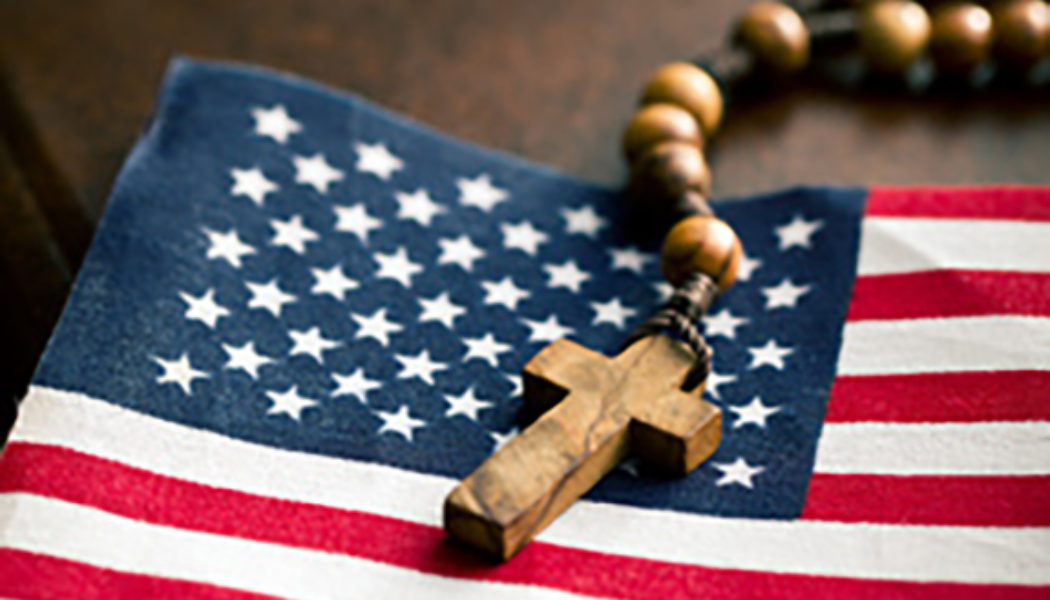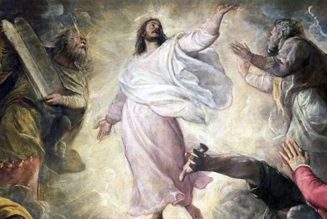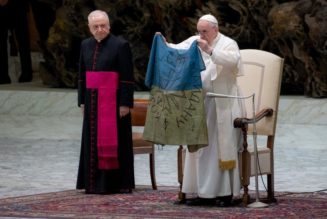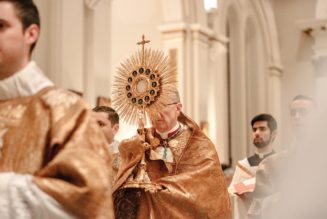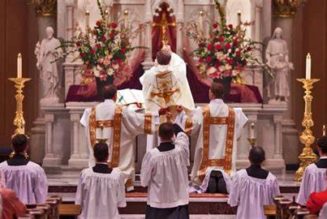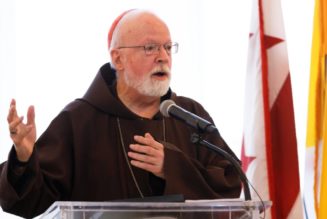
Francis X. Maier is a senior fellow in Catholic studies at the Ethics and Public Policy Center, Washington, D.C., a contributor to CWR, and the author of the new book True Confessions: Voices of Faith from a Life in the Church, published by Ignatius Press.
He recently corresponded with CWR, reflecting on his many conversations with bishops, priests, religious, and lay people, while also sharing insights from the words and actions of “mature, faithful Catholics” in the United States.
CWR: Why choose the title True Confessions, and why write such a book now?
Francis X. Maier: We “confess” our faith every Sunday at Mass, but also through the witness of our daily lives. I wanted to capture what confessing Jesus Christ really looks like through the voices of people who are living, or at least sincerely trying to live, a faithful Catholic life.
And also, frankly, True Confessions, the movie, is one of my all-time favorite films; it’s not a pious story — it has some very rough edges — but in the end, it’s deeply Catholic.
As for why I wrote the book now: I’ve worked in and around the Church for a long time. It’s been one of the great blessings of my life, and I wanted to show why. I think the current leadership in Rome misreads the energy and generosity, as well as the fidelity, of the Church in the United States. Our problems get highlighted, and our strengths get ignored.
There’s a 2017 La Civilta Cattolica article by Antonio Spadaro and Marcelo Figueroa that struck me at the time, and still strikes me today, as remarkably ignorant and ill-willed. But it’s also emblematic of certain ongoing Roman views.
CWR: This book, you explain, is “a snapshot of the Catholic Church in the United States in the third decade of the 21st century.” How did you take this snapshot? What was the process and how did the picture come into focus?
Maier: Originally I thought I’d write a book with my own grand analysis of Church life. But I get bored with professional Catholic commentary, including my own. It seemed more useful to actually talk to other people outside the Catholic chattering class — in other words everyday believers — about their experiences, concerns and convictions.
So that’s what I did: a lot of interviews, 103 of them over a 17-month period, all over the country; bishops, priests, permanent deacons, and religious, with a special focus on laypeople. Each had a different perspective but a single unifying theme: They all loved the Church, despite whatever worries or frustrations they might have. That’s what I was looking for, and that’s what I got: the witness of mature, faithful Catholics.
I avoided the cranks, the tepid, the obsessed, the ideologues, and the chronic complainers. They already get plenty of ink.
CWR: You have more than forty-five years of combined experience in senior diocesan service and editing a national Catholic newsweekly. How does that background and experience shape this book and inform your approach to writing it?
Maier: I got to see, intimately and for decades, how the Church and her leadership actually work from the inside. I worried at the start that the experience would shake my faith. It did exactly the opposite. It made me love the Church more, not less. The Church belongs to God, but she’s populated and run by human beings, so you get to see the warts, sins, and flaws up close. But they’re dwarfed far more frequently by the goodness, the sacrifice, and the dedication of the people you work with.
I’m a skeptical person by nature: The glass is half empty until proven otherwise. But I’ve never lost confidence in the Church. Never.
Looking back on my life, I’m the product of other people’s love: my parents’ faith, my wife’s great heart, and four beautiful kids, now grown, that have made our married life fruitful. The Church provides the meaning to all of that. She makes sense of the world. That’s the deeper backstory behind True Confessions.
Our youngest son has Down syndrome, and the Church speaks for him and persons like him more powerfully than anyone or anything else down through the centuries. If you want to know what Christian love looks like, real Christian love in the face of serious challenges, read the chapter “Special People” in the book. You won’t easily forget it.
CWR: “Extremes on both ends of the ecclesial spectrum,” you point out, “have been excluded” from the book. Do you think those extremes, in just the past couple of years, have intensified or lessened?
Maier: They’ve accelerated. The last 10 years have fueled a lot of confusion, confusion breeds more conflict, and that’s never healthy for the life of the Church, especially when she faces a great deal of external pressure and hostility.
CWR: What were some things from bishops and priests that either surprised you or pushed you to reevaluate your own perspective on particular matters?
Maier: I interviewed 30 bishops from 25 states and one foreign country. I deliberately made those particular interviews anonymous to ensure their candor. The men were remarkably frank, very human, but also uniformly good men doing their best for their people.
The priests, deacons, and religious I spoke with are named, but just as committed in their service. Nothing I heard really surprised me, but people in the pews sometimes tend to assume the worst about Church leadership and criticize too quickly.
CWR: And what about the Catholic laity in the U.S. today? Any surprises, good or bad? What are Catholic lay people most concerned about when it comes to being a Catholic today?
Maier: Again, I wasn’t interested in the merely nominal Catholic or the habitually embittered. That’s a different book for a different writer. I wanted to hear from faithful Catholics; people who take the faith seriously and try to live what they claim to believe.
Fidelity in the Church doesn’t exclude criticism, but it does imply an honest willingness to conform ourselves to her wisdom and teaching. Otherwise we’re just lying to ourselves and everybody else when we identify as “Catholic.” If there was any surprise in my work, it was finding more life and more dedication than I expected . . . along with a healthy dose of criticisms rooted in truth and Christian love.
As for specifics: Wounds from the clergy abuse scandal in the early 2000s have a long half-life, obviously. And financial mismanagement in Rome and in various dioceses in this country, along with a perceived lack of clear teaching and evangelical courage in Church leaders, triggers a lot of anger.
CWR: Attitudes towards Pope Francis are, as you write, “complex”. How would you summarize them?
Maier: American Catholics love the pope. Any pope. That includes Francis. It’s an instinct that tracks back to our years as a mission Church in a heavily Protestant, and often hostile, national culture.
But many of the people I spoke with — all of them faithful — don’t understand why Francis seems to dislike them and dislike their life as a Church in this country while tolerating an effective schism in Germany. They already have a very keen sense of what’s wrong with current U.S. culture without Rome telling them, and they’re better informed and more accurate in their concerns than many of the criticisms coming from Rome.
So they’re puzzled and frustrated. And if that kind of disjunction goes on long enough, it can turn faithful critics and questioners into enemies.
CWR: Some Catholics, it seems fair to say, are a bit cynical about “renewal.” But there certainly is renewal. First, what positive changes—renewals—have you witnessed in your 45 years of public life? Secondly, what are the weaknesses and the ongoing challenges?
Maier: On the positive side, our seminaries are much healthier than they were 30 years ago; they’re producing a generation of well-formed, dedicated young priests; and excellent lay movements and apostolates are on the upswing. On the downside, our numbers are dwindling, and the trend will likely continue for at least a couple decades. That can lead to apathy, despair, or a retreat into nostalgia — none of which serves the Gospel, and none of which is warranted.
CWR: What do you think readers can or should get out of reading this book? How will it help them in their personal lives, their parish, and beyond?
Maier: I wrote the book to communicate hope; that’s what I experienced in developing it, and that’s what I wish for every reader. Nostalgia — the yearning for an imagined past — ends by sapping our energy and killing the spirit, but remembering our history as a believing people, fully and accurately and learning from it, is tremendously medicinal; it’s a wellspring of hope.
History matters because it teaches us humility. But it also teaches us hope, because it reminds us that things have been much worse for the Church many times before, and God has never abandoned his people. Nor will he now, because he loves us. We just need to believe it.
If you value the news and views Catholic World Report provides, please consider donating to support our efforts. Your contribution will help us continue to make CWR available to all readers worldwide for free, without a subscription. Thank you for your generosity!
Click here for more information on donating to CWR. Click here to sign up for our newsletter.
